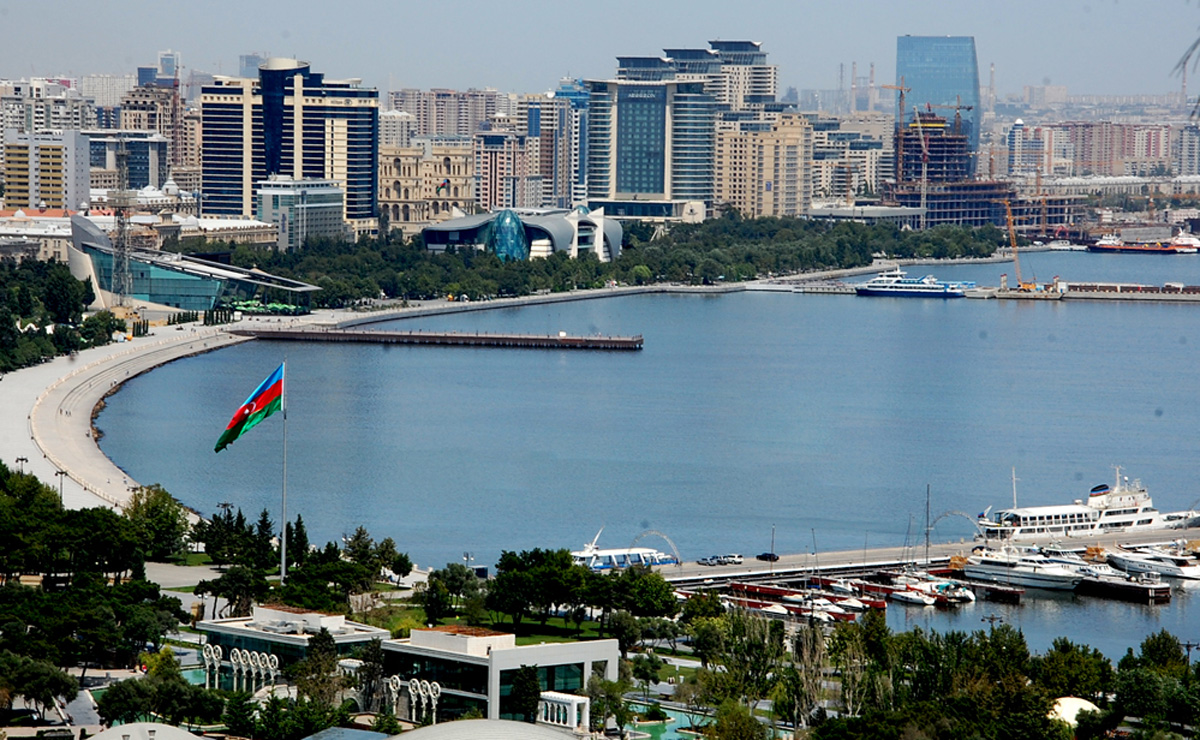By Malik Ayub Sumbal, China Daily Europe,
Strategically-placed nation bears witness to the huge potential of trade route linking Asian and European nations. Azerbaijan, a modern south Caucasus country on the Caspian Sea - rich in oil and natural resources - is a key link in the Silk Road Economic Belt, the Chinese vision for a route connecting Asia, Europe and the rest of the world.
China has huge development projects in this region, involving billions of dollars of investment and trade.
In 2013, Chinese President Xi Jinping put forward the Silk Road Economic Belt initiative, signifying multidirectional cooperation between Eastern and Western countries throughout Central Asia and the Caucasus region.
In March 2015, China declared its Visions and Actions on Jointly Building the Silk Road Economic Belt and 21st-Century Maritime Silk Road.
Azerbaijan is the pivotal point of the China-Central Asia-West Asia Economic Corridor. The country has a long history of welcoming merchants from land and sea due to its proximity to Asia and Europe since the time of the ancient Silk Road. If we look back, the first merchant route between the Roman Empire and Western Han Dynasty (206 BC-AD 24) China emerged in the first century BC in Azerbaijan.
The Silk Road Economic Belt comprises 6 corridors which connect five central Asian countries, Iran and the Persian Gulf region, Transcaucasia, Turkey and the Saudi Arabian peninsula.
Traditionally, trade between China and West Asia takes place mostly via maritime routes, and the China-Central Asia-West Asia Economic Corridor is a land-based substitute for these traditional routes.
The shortest way to approach West Asia from China is via Baku, the capital of Azerbaijan. Azerbaijan was the safest of the old routes in the 5th century BC. Barda (about 250 km west of Baku) was the old capital of Azerbaijan, a trading hub on the ancient Silk Road.
China is the manufacturer of the world's fastest and most luxurious trains and a rail track is already operational from Aktau and Turkmenbashi, transporting goods to the New Baku International Sea Trade Port and then westward to Turkey and Europe.
In August 2015, the Trans-Caspian International Transport Route was launched; the Nomad Express, carrying goods from China's Shihezi, traveled through the port of Aktau and arrived at Baku.
The North-South Transport Corridor is under construction and will connect Iran and Russia, providing road access from Indian Ocean countries to Europe and Central Asia.
China has been promoting the interconnection routes to the west of the Caspian Sea. Both China and Azerbaijan have strong links in the construction of railway tracks for transporting oil and gas. The Baku-Tbilisi-Ceyhan pipeline is a major initiative of Azerbaijan to supply oil and gas to Georgia and countries in Europe. The Baku-Tbilisi-Erzurum Pipeline is another project supplying oil and gas to satisfy the demands of Europe.
Azerbaijan has signed agreements for multiple trans-Caspian international transport routes with Kazakhstan and Georgia, and even initiated the Trans Caspian transport consortium to operate the Trans-Caspian International Transport Route from China to Europe.
Azerbaijan is a major supporter of the Transport Corridor Europe-Caucasus-Asia project, initiated by the EU and considered the backbone of the Silk Road.
History is being repeated and the Chinese vision of One Belt One Road is getting an extraordinary response from countries along the ancient route.
The Baku-Tbilisi-Kars railway has been dubbed the Iron Silk Road.
China has initiated the Silk Road Fund, for which Asian Infrastructure Investment Bank will allocate enormous sums for the construction of these international corridors.
According to estimates, the trans-Caspian route could be transporting around 300,000-400,000 containers by 2020, bringing in hundreds of millions of dollars.
Relations between China and Azerbaijan are growing fast and Azerbaijan has great potential to become a valuable partner in the Silk Road project - one of the great initiatives of the 21th century.
Malik Ayub Sumbal is the Editor in Chief of Eurasia Media Network and The Caspian Times.






